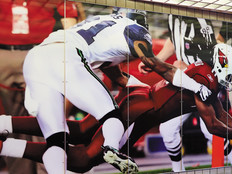Developing the Tools for Mobile Innovation
No matter where they find themselves, employees and business owners today can stay in constant contact with customers — and each other — thanks to the proliferation of mobile devices.
Beyond improving and advancing communication and collaboration, businesses continue to find many more uses for mobile devices. Such versatile and portable tools serve not only as enablers of innovative businesses, but also as platforms for innovation. They are rapidly becoming an essential tool in many operations’ day-to-day function, and businesses that haven’t yet come up with plans to adopt the devices as part of their toolset may soon find themselves in the dark.
“Small Form Factor, Big Business Case” details several common — and not so common — use cases for mobile devices, including a widespread iPad Air deployment to sales teams within Tenneco’s North American Aftermarket business unit. Teams can show off media-rich marketing pitches to customers on the spot with their new devices, Business Analyst Susan Keshen says, as well as troubleshoot customer issues, which ultimately save on printing and shipping costs.
Fans Are Customers Too
As part of a leaguewide commitment to improving technology offerings for professional football fans, the Arizona Cardinals are enhancing the availability of wireless network services at University of Phoenix stadium (see “The Right Call.”) The venue will soon host Super Bowl XLIX and the 2016 College Football National Championship, where the Cardinals can show off brand-new Wi-Fi services and fans in attendance can share everything that’s happening with their friends at home. The team can now also issue gameday tickets and accept payments for its 50/50 charity raffle using mobile point-of-sale devices plugged into the new network.
“We’ve got a lot of creative people in the company, and when they come up with ideas, we can always say, ‘We can do that,’ instead of saying, ‘No,’” says Mark Feller, vice president of technology.
Indeed, ensuring agility and scalability for future customer and business needs is the real driver behind most technology upgrades today, and ensuring that technology supports the demands of mobility is no longer an option.









